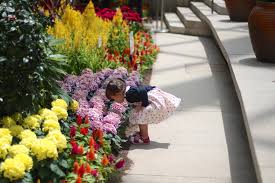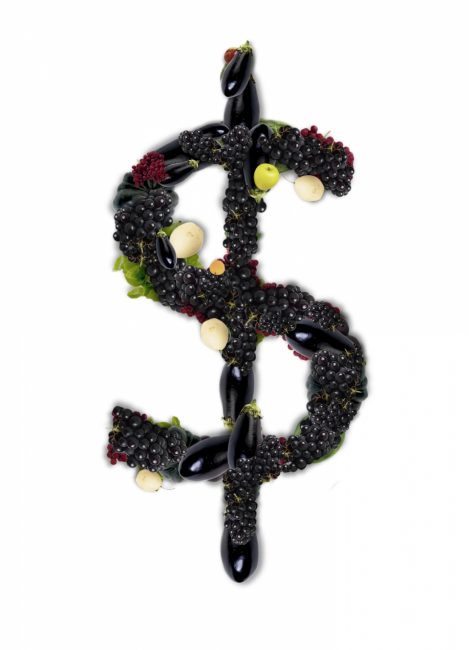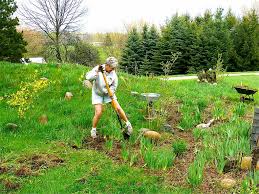In this COVID-19 crisis, perhaps it’s occurred to you that 1) you’re really glad you started gardening or 2) you’re really wishing you had a home garden. If neither thought has occurred to you, I’ll see if I can do a little prompting here by considering:
- how a home garden can alleviate anxiety during a crisis
- why a home garden is a good idea in what-passes-for-normal times
#1. Knowing Where Your Food’s Been

If you were getting to be ultrasensitive to buying produce exposed to unwashed hands, postnasal drip, and mouthbreathers before this crisis, you’re probably really thankful that stores now require shoppers to wear masks and gloves. But remember that those gloves only protect the wearer (think of that the next time your friendly dental hygenist advances on you with gloved hands after opening cabinets and adjusting equipment…)
Beyond this crisis, with a home garden, you KNOW where your food’s been and how it’s been handled. And with an increase in tainted commercial produce, that’s another reason to feel comfortable with your food.
#2. Reduce Store-time

Grocers are taking epic steps to keep the workers and customers as safe as possible by implementing one-way aisles, placing distancing markers inside and out; but still, shopping these days is more stressful, even for those who enjoy shopping.
Having a home garden is an excellent way to limit the need for grocery store trips. Having all or most of your produce needs in or on your sanctuary also reduces the amount of time you’ll have to spend in the store.
Beyond this crisis, a home garden prevents the frustration of realizing a key ingredient is not on hand when you’re in the middle of cooking. No more choosing between skipping the ingredient or hunting for a replacement. You simply step out or over to your growing space and snip, snip – you’re on your way! Other bonuses of eliminating a trip to the store:
- reduces your carbon footprint (unless you’re in walking distance of the store)
- reduces spending; gardening is a buy-once-use-often deal. Consider how many servings you can get from one packet of seeds or a seedling.
- saves you from impulse shopping. My strategy is to shop without a basket; if I can’t carry it, I’m not buying it. But when I DO have a basket… Sometimes it’s better not to be in a store.
#3. Getting Vitamin D the Original Way

The lockdown is doing wonders for reducing carbon emission rates so it’s a great time to be outside (allergy sufferers, do what you gotta do). One benefit is that ultraviolet-B in sunlight triggers the production of vitamin D, a vitamin whose importance is increasingly seen.
According to limited research, wearing sunscreen doesn’t completely block UVB from doing its job. The longer you’re under the sun, the more the D making process can proceed.
Certain research also suggests midday sun is better than late afternoon sun. For more on how UVB and cholesterol produce D without causing sunburn, check out this Healthline article.
Beyond this crisis, there isn’t a time that our bodies do not need D. An outdoor home garden allows you to make your own; whittle down your prescription list, minimize in-store time. Sunlight is free; prescriptions and supplements are not.
#4. Calm Ragged Nerves

Threatened or lost income, homeschooling, limited (or too much) contact with family and friends, cabin fever – the pandemic can really take a toll on our heads. A home garden is an excellent way to self-medicate without leaving your property.
As reported in this LiveScience article, Mycobacterium vacccae, a common soil bacteria, had the same effect on cancer patients as an antidepressant medication. But if you’ve had your hands in dirt, you don’t need a researcher to tell you how good that made you feel.
Beyond this crisis – well, life is all about riding the highs and lows of stress, so there’s always a good reason to dig in the dirt. Gardening is a mood-booster, gives you the satisfaction of nurturing living things and seeing them flourish.
The color and scent of growing things is downright therapeutic.
#5. Reduce Exposure to Panicked Shoppers

Some folks just seem to be happier being in a tizzy. A crisis happens, snow is forecast, and off they go, storing up things they’ll probably never use in 10 years. A home garden gives you fewer reasons to be at the store – unless you enjoy watching store managers forcibly relieve customers of a basketload of toilet paper. Save your nerves
Beyond the crisis: Enjoy more yard time, less crowded store (and road) time.
#6. Reduce Unhealthy Stress Eating

You’ve seen the jokes, people wondering how they’re going to fit through the front door once this crisis ends. We’re giggling at boredom and stress eating but realistically, that’s called making a bad situation worse.
Salt and sugar drive up blood pressure which is probably already up from COVID-blues. Empty calories can make us sluggish and, if there’s a food sensitivity involved, your queasy stomach may not just be nerves.
A home garden means instant access to fresh vegetables, fruits, and herbs – nuts and mushrooms, too. Can a garden produce comfort food? Let’s see, there’s –
Comfort foods make us feel satisfied, cared for, and calm.
Crunchy ‘n’ Creamy – Gnoshing on raw veggies and flatbreads with creamy polenta, hummus, spinach or mushroom dip, baba ganoush, or cucumber-dill dip
Ooey Gooey Oven Goodness – Pumpkin pie, baked sweet potato, a casserole or pizza with dairy or plant cheese…
Baking Bonanza – apple-zucchini bread, carrot cake, blueberry muffins…
Cool ‘n’ Creamy – avocado chocolate mousse, smoothies featuring (store-bought) dried coconut or cashews, lemon mousse…
Avoid the refined sugar in favor of stevia, xylitol, maple syrup, or coconut sugar. Also try dried dates, white grape juice, or apple syrup for sweetness.
So, yeah, the answer is Defitively.
#7. Minimized Impact of Shortages

We’re constantly reminded that the food supply is safe, even as we’re warned about a potential meat shortage soon. Our hearts break for commercial farmers forced to destroy tons of their hard labor because restaurants aren’t ordering. The future impact on produce pricing remains to be seen.
A home garden can ensure you’ll eat well even when store shelves get bare. As noted above, comfort food from the garden is doable.
Beyond this crisis, fresh and preserved foods from a home garden will supply much of your food needs if not all of your wants all year-round. And by canning, dehydrating, or freeze-drying your harvest, you can have a nice variety stored away in your emergency preparedness food supply.
And, depending on the scale of your home garden, you may find a lucrative gig selling what your garden grows to local restaurants and food banks.
NOTE: If you’re not in a position to benefit from a home garden now, the next best thing is to support local farmer’s markets. They are still up and running with safety measures like prebagged produce and social distancing in place. Check the National Farmers Market Directory for location and contact info for a market near you.
#8. Penny Pincher’s Delight

For many, funds are tight; a $1200 check is nice, but won’t go very far. A home garden is one practical way to lower expenses. Especially for those frequently bought smoothie and salad supplies. With the money saved there, you may be more inclined to splurge on organic meats and dairy products.
Beyond the crisis: A 2017 CareerBuilder study found that 78% of American workers live paycheck to paycheck and don’t have emergency savings. Clearly, there is never a time when the majority of us don’t need to spend carefully. Beyond the initial set up cost, a home garden is a grocery cost-saver year end, year out.
#9. Practical Exercise

During this stressful period, exercise is encouraged to lift mood and keep the heart happy. If you’re bored by exercising for the sake of exercising, a home garden can add a functional element to your efforts. Gardening promotes endurance, flexibility, and strength – the three main types of exercise. It is a full-body workout engaging all major (and many minor) muscle groups from head to toe.
If you’re concerned about cardio, there is such a thing as aerobic gardening. It is passionately promoted by Jeffrey Restuccio, a lifelong weight trainer and holder of a black belt in Tae Won Do. If gardening-as-exercise-routine sounds appealing, check out his book.
Beyond the crisis: The folks at Harvard Health have a chart of calories burned in 30 minutes of activity by people weighing 125, 155, and 185 pounds. A few notes of interest:
- Planting shrubs or seedlings burns the same amount of calories as water aerobics – 120, 149, or 178 calories.
- General gardening burns 135, 167, or 200 calories; which is equivalent to walking 4 miles/hour, a game of badminton, or moderate calisthenics.
- Digging/spading burns 150, 186, or 222 calories; which is equivalent to white water rafting.
Although gardening may not torch calories like circuit training (240, 289, 355 calories) or a stationary bike (315, 391, 466 calories), it leaves you with more, long after the endorphin rush of a good workout is past.
You’re on your way to food that can fuel future workouts and calm those comfort food cravings. And you’ll have something soothing to look at, possibly to smell. Providing food for the body or for the soul, gardening is a win-win-win activity.

So, are you ready to double dig and get your home garden (re)started? If so, welcome to a rewarding and satisfying new chapter to your life that will serve you well for years to come. If you need a hand getting started, book a consult here.
